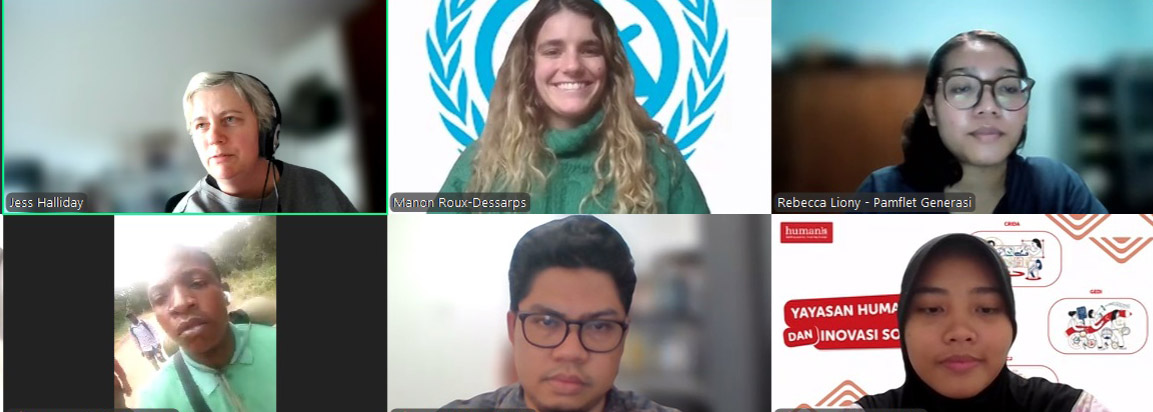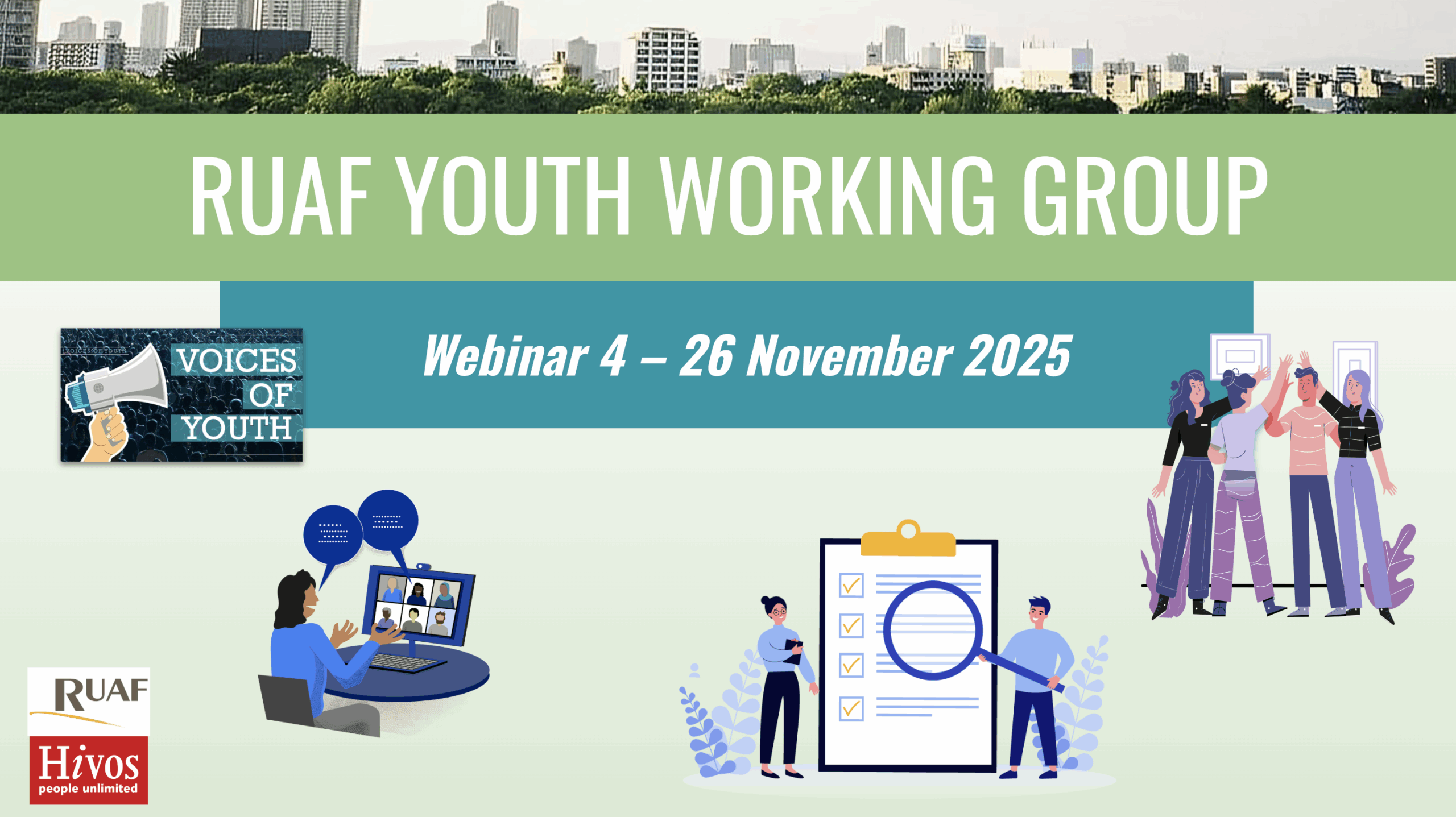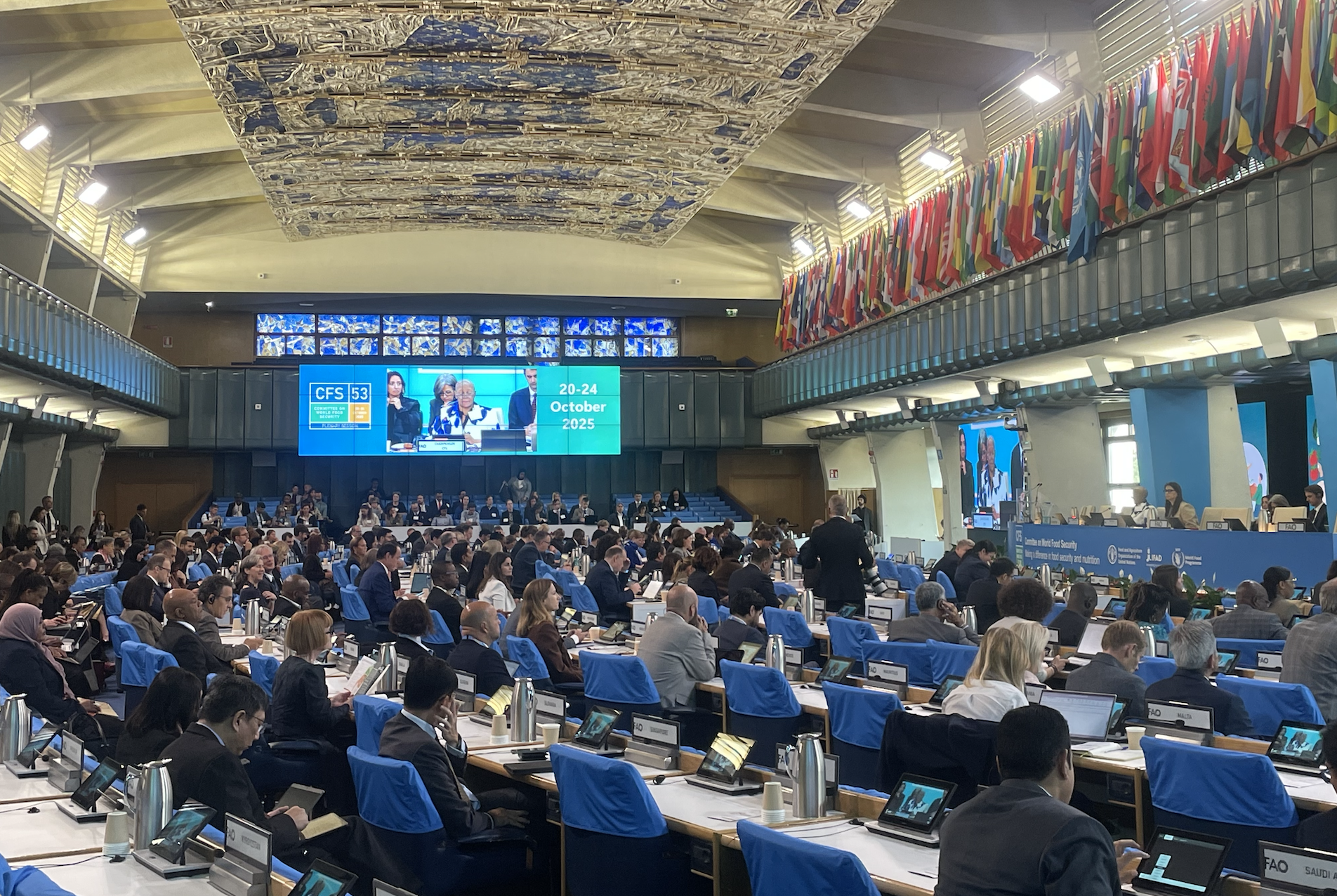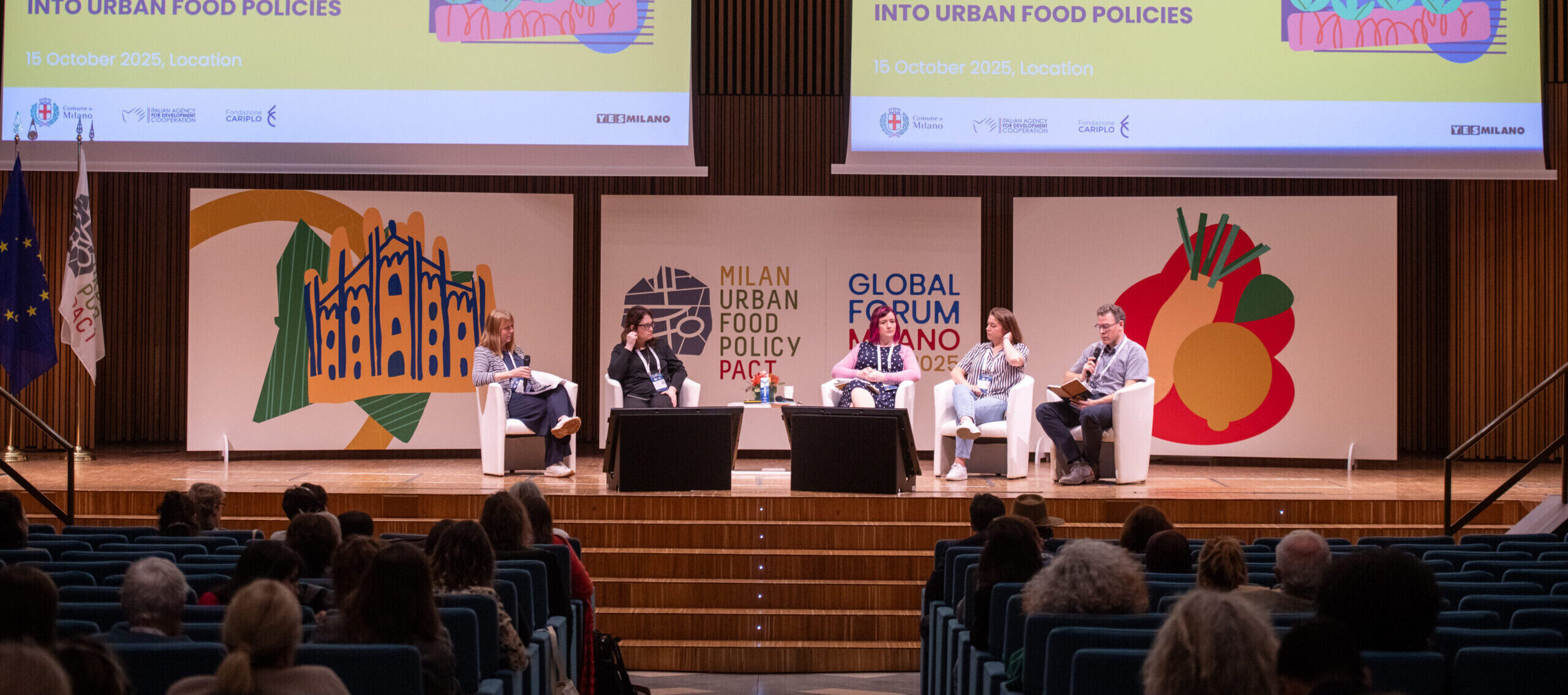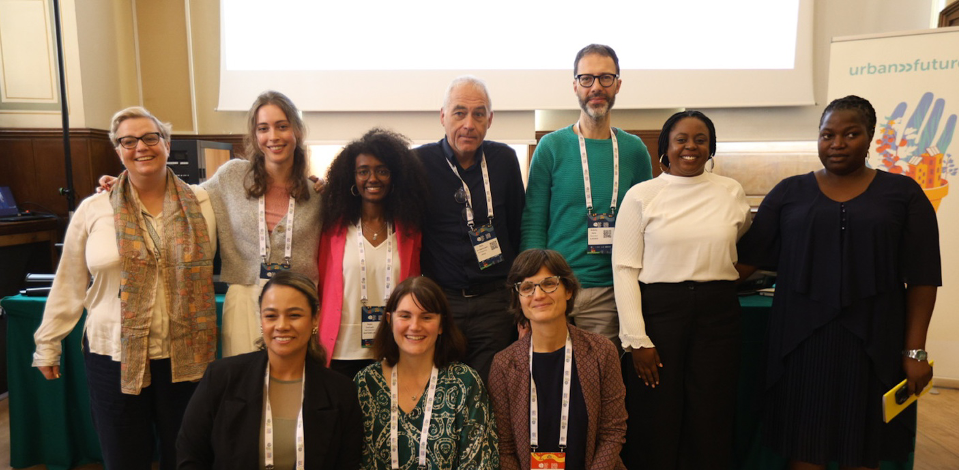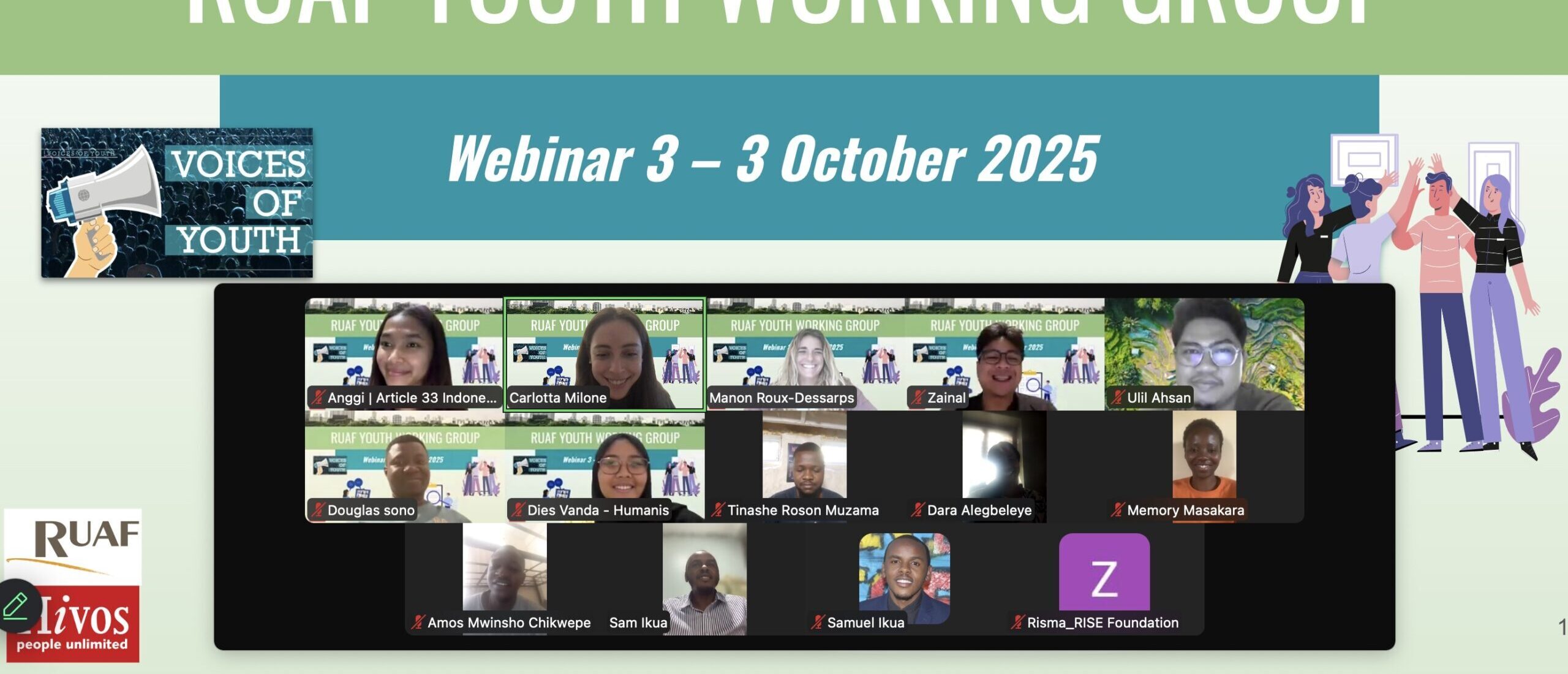RUAF Youth Working Group members have identified a number of success factors behind youth-led actions to strengthen urban food systems, and take-away messages for urban food system stakeholders that are committed to ensuring youth are supported in their initiatives and have a space in food systems governance.
The success factors, which were identified during the second RUAF Youth Working Group (YWG) meeting in November 2024, include: collaboration with stakeholders; mentorship and support systems; visibility and advocacy; blended financing models; and leveraging innovation.
Among the messages, the YWG members request governments to integrate youth-driven solutions into national food security and urban development strategies. They also call on governments and funders to support youth incubators, and universities and NGOs to create mentorship programmes to connect youth with experienced entrepreneurs, industry experts and policy makers.
To international organisations, they highlighted the need for youth to have a seat at the table by institutionalising youth advisory councils in urban food system governance.
The RUAF Global Partnership on Sustainable Urban Agriculture and Food Systems formed the RUAF YWG in 2924, with the first two meetings supported by the Hivos-led Urban Futures programme. It establishes a youth voice within the RUAF Global Partnership to help shape priority work themes and development of joint projects between partners.
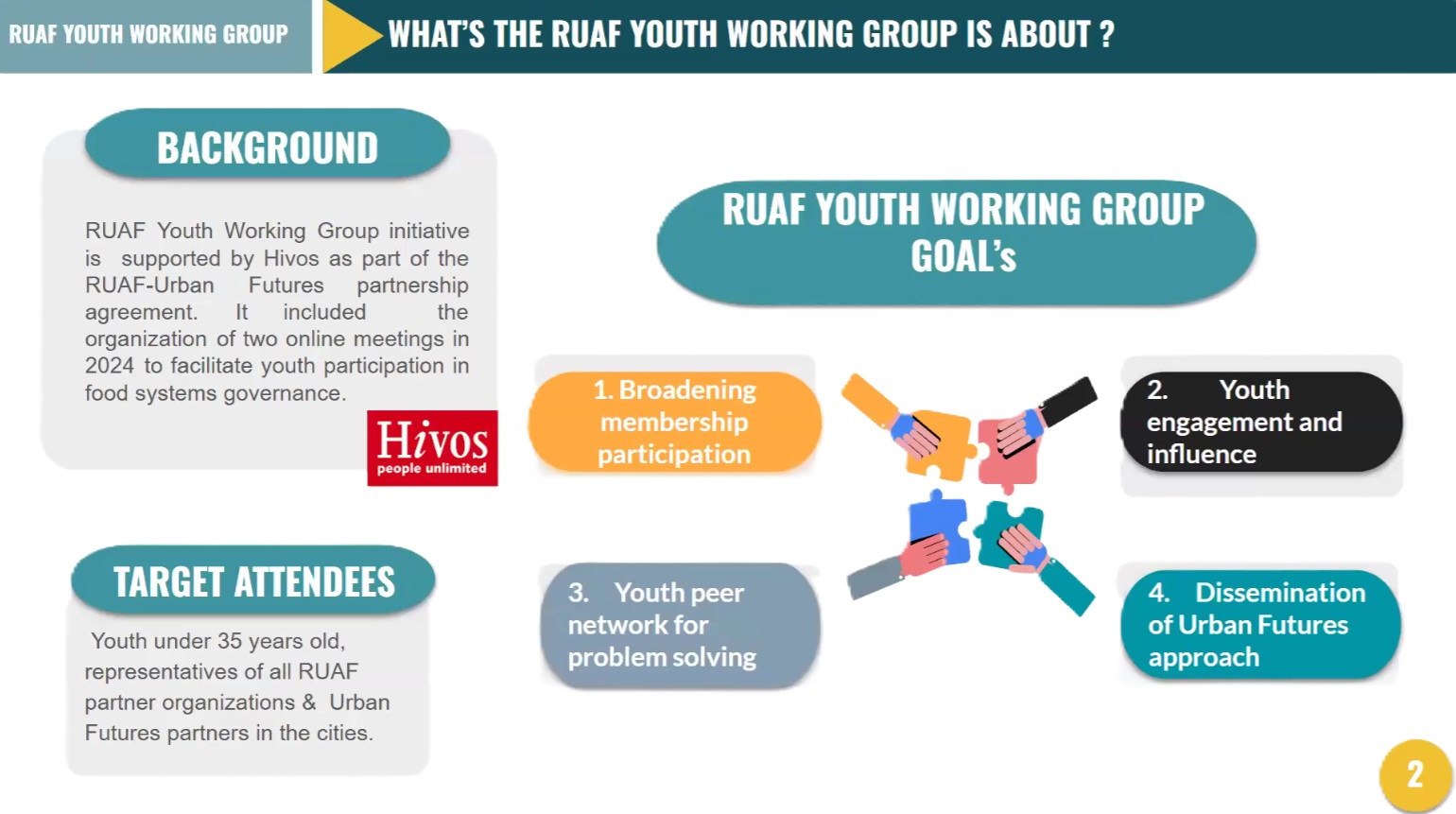
The RUAF YWG also provides an opportunity for all attendees to raise issues or difficulties with an expert peer network from different parts of the world, for collective analysis and problem-solving. In particular, it helps disseminate the Urban Futures approach and experiences, and exposes Urban Futures youth partners to experiences and perspectives of young people working on urban food systems in other projects and contexts.
On 28th November 2024, the second online meeting was held to promote youth participation, broaden membership, enhance youth influence, and disseminate the Urban Futures approach. The meeting centred on identifying and discussing practical solutions for scaling youth-led initiatives in urban food systems. Through collaborative discussions and success story presentations, participants examined innovative approaches to enhance youth engagement in policy-making, urban agriculture, and access to financing. These insights not only support youth-led initiatives but also offer actionable recommendations for funders, governments, NGOs, and private sector stakeholders seeking to create a more inclusive and supportive ecosystem for young changemakers in urban food systems.
‘ Youth are not just future leaders; we are leaders today. But to drive real change, we need access to resources, decision-making spaces, and platforms where our voices are truly heard.’
RUAF YWG member
The participants included representatives from RUAF partner organizations under the age of 35 and Urban Futures youth partners from various cities. In total 23 individuals joined from Indonesia, Vietnam, Burkina Faso, Zambia, Zimbabwe, Peru and Ecuador, all of whom work with food system associations and organizations such as Rikolto, Hivos, IWMI, KEHATIRISE Foundation, and PAMPHLET Research Institute.
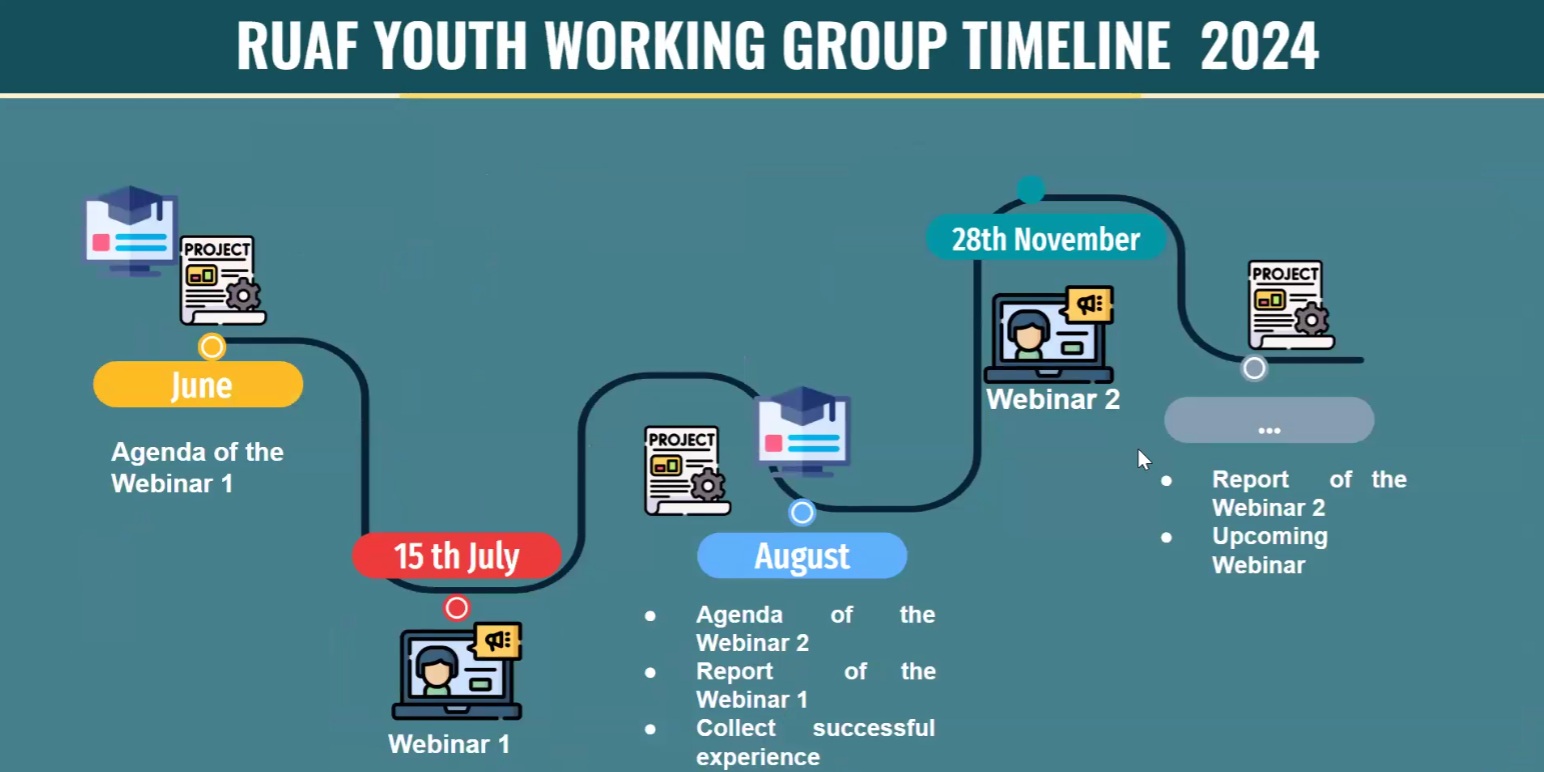
Webinar agenda
The webinar began with participant introductions, followed by a recap of the key challenges and solutions identified during Webinar 1, held on July 15, 2024. These challenges were centred around three priority themes, which were identified by participants through a pre-webinar questionnaire.
|
Priority themes |
Related challenges |
|
Youth engagement in policy and decision-making |
|
|
Youth action in urban food systems |
|
|
Affordable financing for youth initiatives in urban food systems |
|
Participants then shared success stories from existing initiatives that aligned with the priority themes. These case studies were identified collaboratively in groups between the two webinars, allowing participants to explore and present real-world examples of successful youth-led initiatives in urban food systems. The session was followed by an engaging plenary discussion, allowing participants to reflect on key success factors & take-away messages for Urban Agriculture and Food Systems stakeholders.
Learning from success: success stories shared by RUAF youth working group participants
Theme I: Youth engagement in policy and decision-making
Koalisi Pangan Baik (The Good Food Coalition) – Indonesia
Koalisi Pangan Baik empowers youth to voice the impacts of climate change on agriculture and local food systems. By facilitating regular discussions with young people, they identify problems locally and develop solutions collaboratively. Young champions, known as local mobilizers, are nurtured in each village to address specific issues, such as reducing dependence on instant food through community-led actions.
Think Policy – Indonesia
The Bijak Demokrasi platform provides youth with resources, capacity-building initiatives, and opportunities to engage in policy-making. Using tools like election simulation games , this initiative informs young voters and supports aspiring policymakers.
JAKART4LKS Forum – Indonesia
JAKART4LKS is a forum for Jabodetabek youth to discuss directly with the candidates running for legislative positions.
Theme II: Youth action in urban food systems
Taboka’s success story – Zimbabwe
Taboka, a youth leader in Bulawayo, succeeded in urban farming with the help of strong mentorship and consistency. These factors were instrumental in establishing a sustainable farming project.
Empowering students through sustainable beekeeping – Zambia
The “Youth in Action for Sustainable Beekeeping” project was launched at Mukuba University and engaged over 70 youth in practical beekeeping lessons, equipping agricultural science students with skills that extended beyond their studies. Honey harvested from university apiaries was sold locally.
Youth-led success: AGAVI – Indonesia
AGAVI specializes in agricultural and food processing innovation, tackling industry challenges and adding value to local resources through food technology and education, promoting healthier eating habits and lifestyles.
Success factors:
- Complementary founders’ backgrounds: Expertise in agriculture, food, and business fields.
- Specialized team: A lean but skilled team focused on innovation.
- Collaboration: Partnerships with certification bodies, universities, and labs for high-quality services.
Theme III: Affordable financing for youth initiatives
Growing underground – England
This innovative urban farming initiative uses abandoned underground spaces in London to grow high-yield, low-water crops like microgreens and salads through hydroponic systems.
Success factors:
- Crowdfunding: Raised over £500,000 via Crowdcube from impact-driven investors.
- Partnerships: Collaborated with retailers like Marks & Spencer and Whole Foods, ensuring market stability.
- Private equity & government support: Secured equity investments and grants from the UK government’s green initiatives.
- Marketing: Promoted as an eco-friendly, cutting-edge solution to urban farming challenges.
AgroCenta – Ghana
An online platform connecting smallholder farmers with urban buyers, AgroCenta addresses market access and financing challenges.
Success factors:
- Grants & equity investments: Secured over $750,000 through initiatives like the Kosmos Innovation Center AgriTech Challenge.
- Affordable credit: Partnered with microfinance institutions to offer accessible loans.
- Institutional partnerships: Collaborated with government bodies and NGOs, enhancing credibility and reducing financial risk.
- Mentorship: Benefited from support provided by incubators such as the Kosmos Innovation Center.
Parongpong – Indonesia
A circular economy initiative focused on waste management through a cooperative system. Parongpong processes organic waste into insect protein for animal feed and partners with other organizations for recycling.
Success factors:
- Diversified business lines: Ensures sustainable growth by addressing multiple aspects of waste management.
- Collaborations: Works with specialized ventures to optimize recycling and organic waste management.
Key success factors & take-away messages for urban agriculture and food systems stakeholders
By analyzing success stories shared during the webinar, key success factors and take-away messages for Urban Agriculture and Food Systems stakeholders were identified.
- Collaboration with stakeholders
Many initiatives, such as Growing Underground and Parongpong, successfully partner with government bodies, NGOs, and private entities. These collaborations build credibility, reduce risks, and ensure broader support for scaling ventures.
→ Take-away for funders, governments, and NGOs: Strengthen multi-stakeholder partnerships by creating dedicated funding streams and policy incentives that encourage collaboration between youth initiatives and established institutions. Governments should integrate youth-driven solutions into national food security and urban development strategies.
- Mentorship and support systems
Personal and organizational mentorship played a critical role in the success of projects like Taboka’s urban farming and the sustainable beekeeping initiative in Zambia. Access to experienced advisors helps youth navigate challenges and stay committed to their goals.
→ Take-away for universities, incubators, and NGOs: Establish structured mentorship programs that connect youth with experienced entrepreneurs, industry experts, and policymakers. Governments and funders should support youth incubators and accelerator programs that provide long-term mentorship alongside technical and financial assistance.
- Visibility and advocacy
Forums like JAKART4LKS highlight the significance of creating platforms for direct dialogue between youth and policymakers. Increased visibility for youth voices ensures that their concerns and ideas are represented in decision-making processes.
→ Take-away for policymakers, media, and international organizations: Ensure that youth have a seat at the table by institutionalizing youth advisory councils in urban food system governance. Development organizations and media should actively promote youth success stories to shift narratives and attract further investment.
- Blended financing models
Securing funds through diverse sources—including equity, grants, and crowdfunding—proves vital for scaling initiatives.
→ Take-away for funders, investors, and financial institutions: Develop youth-friendly financing mechanisms, such as low-interest loans, challenge funds, and blended finance models that combine public and private investment. Donors should provide catalytic funding that enables youth initiatives to access larger pools of capital.
- Leveraging innovation
Platforms like Think Policy Indonesia and AgroCenta highlight how digital tools can amplify youth engagement in policy-making and market access. Online platforms, social media, and gamified experiences (e.g., election simulations) effectively engage and educate younger audiences.
→ Take-away for wider projects, tech providers, and development agencies: Invest in digital infrastructure that supports youth-led solutions, such as open-access policy forums, e-learning platforms, and mobile applications for urban agriculture and food systems. Funders should support youth-friendly digital tools that enhance engagement and market connectivity.
By recognizing these success factors and taking targeted actions, governments, funders, NGOs, and wider urban food system projects can create an enabling environment that allows youth-led initiatives to thrive, scale, and drive meaningful change.


